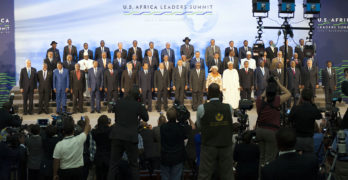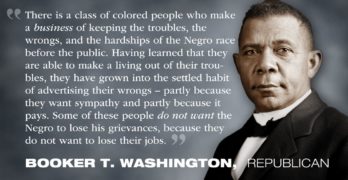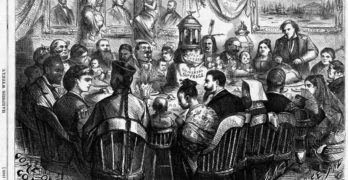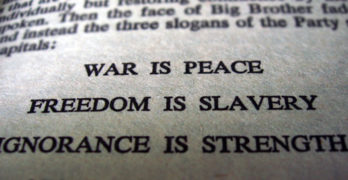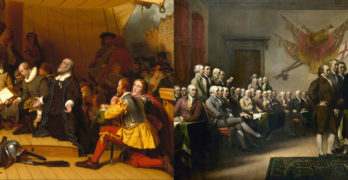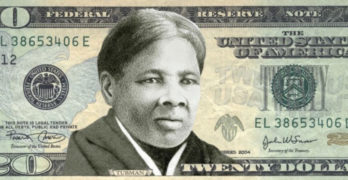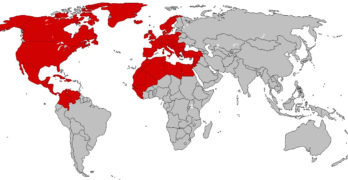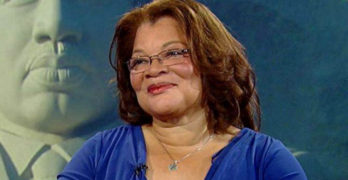 In Old Testament times most, people were poor and lived at a subsistence level. Thus, leaving an inheritance (normally land) was vital to enable the following generation(s) to continue farming and raise livestock, without getting enslaved. The distribution of the inheritance was executed like this: usually, daughters did not receive land, for they commonly lived with their parents until they married, after which they benefitted from their husband’s land; but all sons received an equal portion of land except the firstborn son who got double:
In Old Testament times most, people were poor and lived at a subsistence level. Thus, leaving an inheritance (normally land) was vital to enable the following generation(s) to continue farming and raise livestock, without getting enslaved. The distribution of the inheritance was executed like this: usually, daughters did not receive land, for they commonly lived with their parents until they married, after which they benefitted from their husband’s land; but all sons received an equal portion of land except the firstborn son who got double:
If a man has two wives, one loved and the other unloved, and both the loved and the unloved have born him sons, and the firstborn son belongs to the unloved wife, then on the day when he wills his possessions to his sons, he cannot treat the son of his loved wife as firstborn in place of the son of the unloved wife—the actual firstborn. Instead, he shall acknowledge the son of the unloved as the firstborn, by giving him a double portion of all that he has, for he was the beginning of his strength (generative power); to him belongs the right of the firstborn (Deuteronomy 21:15-17).
Only if there were no sons, daughters would inherit; with no daughters, the brothers of the deceased would be in line; with no brothers, the nearest relative would inherit (Num 27:1-11).
This law no longer binds in the New Covenant because polygamy is no longer acceptable. Second daughters are now eligible to receive the double portion if the deceased bequeathed it in their will. What remains is the principle of proportionality. The first son no longer automatically inherits either the double portion or the entire estate. Instead, the ‘firstborn’’ has an ethical responsibility, not a position granted by natural birth order.
It’s the reason why someone from the crowd said to Jesus: Master, order my brother to divide the inheritance and share it with me in Luke 12:13-21..” Jesus replied, “Man, who appointed me a judge or an arbiter between you?” Then he said to them, “Watch out! Be on your guard against all kinds of greed; life does not consist in an abundance of possessions.” (Luke 12:13-15) And the parable of the prodigal son: And He said, there was a certain man who had two sons; And the younger of them said to his father, Father, give me the part of the property that falls to me. And he divided the estate between them Luke 15: 11-32).
Ultimately, even if the land was sold at some stage, it remained in the family line as it reverted to them in the year of Jubilee when all debts were cancelled. All this is a background to the following Scriptures: Good people leave an inheritance to their grandchildren…. (Proverbs 13:22). Houses and wealth are inherited from parents…. (Proverbs 19:14) If we wanted to derive a law from the above scriptures to adhere to today, we’d also need to follow the biblical distribution pattern, i.e., giving only to sons and the oldest one a double portion, etc.
However, whilst especially in the subsistence-small scale farming sector land is still passed on to the next generation, it’s fair to say that biblical inheritance patterns are generally not followed at all. The reason may be that, especially in industrial countries, the entire economic landscape has changed leading to a different inheritance approach. Most people have no land and those who still have, rarely own productive grounds.
Children tend to leave their parents early and seldom carry on with the family business if there is one. They move to economic hubs where they build their own careers and mostly become financially independent. When they inherit real estate, these are typically sold. It provides a windfall for them that is not necessarily needed but welcomed to improve their living standards. The family property, however, is gone.
So, then what’s a biblical approach to inheritance today especially in the African culture?
The scriptures hint at the importance of handling wealth correctly, which applies to both parents and children: I have seen a grievous evil under the sun: wealth hoarded to the harm of its owners, or wealth lost through some misfortune so that when they have children there is nothing left for them to inherit (Eccl 5:13-14).
To be clear, there is nothing wrong with leaving a material or financial inheritance to our children if we can. Likewise, we also decide on the time of transfer. However, the parable of the Prodigal Son (Luke 15:11-31) shows that there are no guarantees as to how the children will see their inheritance (older son) or use it (younger son). The question is, have we prepared our children to handle it well?
When raised with kid gloves, children will, when they grow up, expect life to treat them the same way their parents did. But life is pretty tough! I have found that out the hard way, and I have observed the lives of many people whose parents treated them with unscriptural self-indulgence and I would say that, in varying degrees, they have all had difficult lives. To spoil your children is not kindness or love. The most unhappy and unfulfilled children are the ones with no discipline in their lives. It was Spurgeon who wrote:
If you want to ruin your children, never let them know hardship. If you want to prevent them from ever being useful, guard them from every kind of work and do not let them struggle. Pity them when they should be punished, supply all their wishes, avert all their disappointments. Prevent all trouble, and you will surely train them to break your heart. If you put them where they must work, expose them to difficulties, purposely throw them into peril, then you will make them mature and ready for life.
We have to teach our children the values of hard work, integrity, honesty, diligence, patience, empathy, mental strength, frugality, tenacity and the importance of starting from scratch or small beginnings. We must prepare our beneficiaries to own and move estates forward because wealth is generational. I have seen through personal experience that many Asians teach children to have hands-on experience so that they can gradually leave ownership of their estates to them as they become mature.
John Chrysostom said,
If you wish to leave much wealth to your children, leave them in God’s care. Do not leave them riches, but virtue and skills. For if they have the confidence of riches, they will not mind anything besides, for they shall have the means of screening (hiding) the wickedness of their ways in their abundant riches.
Although it can’t be seen, counted, or measured, a spiritual inheritance is the most priceless gift you can pass on to your children and grandchildren. To be brought up in the nurture and admonition of the Lord and an atmosphere of prayer and reverence for the Word is to be stamped in youth with impressions that are of great value, even though sometimes the results looked for are long in appearing. A godly upbringing is a priceless heritage.
Any financial inheritance is worthless and usually wasted quickly, if the spiritual foundation for dealing with it properly isn’t laid (Proverbs 20:21). After all, a material inheritance cannot be taken to eternity, but a spiritual inheritance helps to determine where the heir will spend eternity.
Teaching and demonstrating the biblical approach to money is a vital part of the heritage that parents should give to their children. It is even more important than material wealth itself as it may prevent the child’s destruction by money (1Timothy 6:10, 2 Timothy 3:2, Hebrews 13:5). For Christians, every inheritance remains the property of God and must therefore continue to be administered in His interest. Only the trustee has changed.
Thus, parents need to teach their children what good stewardship means, and be an example of what it means that you can’t serve God and money at the same time (Matt 6:24). Teaching God’s principles and ways, imparting spiritual truth and wisdom, is an inheritance of eternal value in itself, and must never be underrated (see Proverbs 1-7).
The most important and powerful inheritance parents can pass on to their children is to show by their own lives that God is an omnipresent reality; that He is trustworthy in every way including provision; that He is full of love, care, compassion and eagerly interested in His children’s success and fulfilment. If parents fail to do this, they rob their kids of an inheritance of everlasting value.
What about Stolen Inheritance?
Unfortunately, we live in an era of greed and materialism. I have had so many stories even through the personal experience of people who are having family discords, distress, endless wrangles and ultimately death in families because of inheritances. Robert Anderson explains a personal experience in his book Operating in the Courts of Heaven. He writes:
There was a lady very close to our family that was diagnosed with breast cancer. When this lady was 13 years old, her mother had been diagnosed with breast cancer and she died at just 43 years of age. The disease had spread in her body just as it was now spreading in her daughter’s body. This friend of ours was 43 when she was diagnosed and also had a 13-year-old daughter. The parallels were astounding. I knew we were dealing with a generational, family curse.
When she was on her deathbed, her husband called me and asked if I would pray for her. I went to her home where there were already other people gathered at her bedside praying for her. I placed my hand on her head and as I began to pray, I felt the Father’s passion to heal this woman. It was unmistakable. I had felt this in many situations and knew it well. I prayed the best prayer I knew how to pray. I prayed with the unction and power of the Spirit of the Lord. It wasn’t a natural prayer; it was a supernatural one. Yet, twelve hours later, she died. She died at age 43, leaving behind a 13-year-old daughter – exactly as her mother had done! What a tragedy. It was only much later that I was able to explain why this had happened. At the time of my prayer, I did not know that this lady and her husband had connived to steal resources that belonged to someone else. Proverbs 26:2 says that a curse has to have a cause to alight. Like a flitting sparrow, like a flying swallow, So a curse without cause shall not alight.
Curses are pictured as sparrows and swallows flying around and looking for a place to land. They cannot land unless a legal right allows them to land. This woman had a curse in her family, that was circling her and looking for a legal opportunity to land and afflict her. She had actually confessed, professed and done everything she knew to do, to keep this away from her and her family for years. When she and her husband opened the door to this curse through their dishonour and thievery, the curse now had a legal reason to be able to land on her.
Micah 2:1-3 shows what happened in this situation.
Woe to those who devise iniquity, and work out evil on their beds! At morning light, they practice it, because it is in the power of their hand. They covet fields and take them by violence, also houses, and seize them. So, they oppress a man and his house, A man and his inheritance. Therefore, thus says the Lord: “Behold, against this family I am devising disaster, from which you cannot remove your necks; Nor shall you walk haughtily, for this is an evil time (Micah 2:1-3).
God says that if someone who has been granted power through trust, uses that power to steal away inheritances, a disaster can come upon them that they won’t be able to escape. This is what happened to this lady and her family. As a result of her participation in these deviant practices, the devil had a legal right to afflict her with a family curse.
The devil was legally allowed to take her life even though God’s passion was to heal her. The only way that the Lord could have healed her was if she had repented of that which she had done. Then the power of the curse would have been broken and God as Judge could have fulfilled His passion as Father, legally.
The activity of dishonour and thievery opens the door for the curse to come upon the perpetrators, especially to those in power in countries like Uganda with a corrupted land registry system, inefficient police force, corrupt lawyers, judges, political interference in land disputes, compensation etc.
However, we, disciples of the Lord Jesus, have been promised an inheritance which is imperishable beyond the reach of change and undefiled and unfading, reserved in heaven for us (1 Peter 1:1-4).
If we seek like the people of the world, to increase our possessions, then those who are not believers may question whether we believe what we say about our inheritance and our heavenly calling. The Lord says the earth is a place where moth and rust doth corrupt and where thieves break through and steal. All that is of earth, and in any way connected with it, is subject to corruption, change and dissolution. No reality or substance exists in anything but heavenly things. Often the careful amassing of earthly possessions ends in losing them in a moment by fire, robbery, or change in the world markets.
Furthermore, in a little while, we must all leave this earth, or the Lord Jesus Christ will return. What use will earthly possessions be then? Nothing is our own: time, property, influence, faculties, body and soul. ‘’ You are not your own (1 Corinthians 6:19). When we submit to the Lord, we surrender everything including our properties to Him to be ruled and disposed of at His pleasure. He owns it all.






